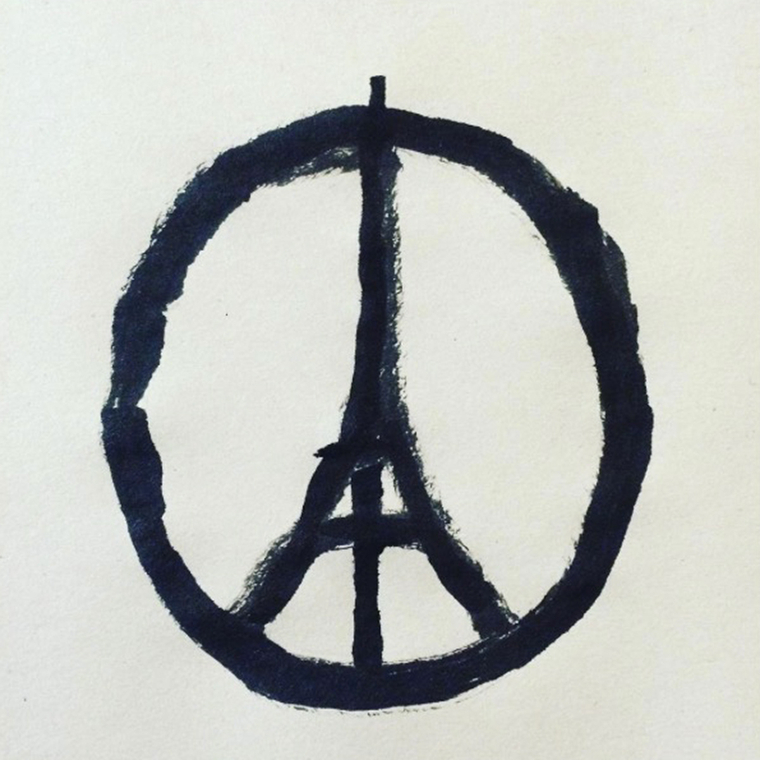Peace for Paris image by artist Jean Jullien
In his Loose canon column for the Guardian, Dr. Giles Fraser opines that the narrative of radicalization is a myth which helps us avoid our responsibility in creating the conditions which have led to terrorism committed by young, formerly secular, men.
From the op-ed:
We buy into the radicalisation hypothesis because we want evil to be mysterious and other; something that has nothing to do with us. We want to tell ourselves that we are secular and enlightened and so have no part in all of this bloodshed. It’s what people commonly do with evil – we conceptualise it as being as far away from us as possible. But if Islamic terrorism is really all about politics, then we have to admit that the long history of disastrous western interventions in the Middle East is a part of the cause of the horror that continues to unfold. In other words, we have to face our responsibility.
Writing for Slate, Ben Norton reviews statistics on terrorist attacks worldwide and in Europe to make a similar point. Noting the racial, religious, and ethnic differences between victims worldwide, Norton supports Fraser’s claim that the dominant media in America and Europe see terrorists as ‘mysterious and other’. He also explores the stated motivations and aims of terrorists, and points to a lack of coverage even in Europe of terrorist attacks that don’t fit the religious extremist narrative.
From the Slate article:
Actual evidence, on the other hand, shows that less than two percent of terrorist attacks from 2009 to 2013 in the E.U. were religiously motivated. In 2013, just one percent of the 152 terrorist attacks were religious in nature; in 2012, less than three percent of the 219 terrorist attacks were inspired by religion.
The vast majority of terrorist attacks in these years were motivated by ethno-nationalism or separatism. In 2013, 55 percent of terrorist attacks were ethno-nationalist or separatist in nature; in 2012, more than three-quarters (76 percent) of terrorist attacks were inspired by ethno-nationalism or separatism.
Did your church join in prayers for victims in Paris and less familiar locations? Do you fear a backlash against innocent people, based solely on prejudice or stereotypes of their faith?
More on Jean Jullien

